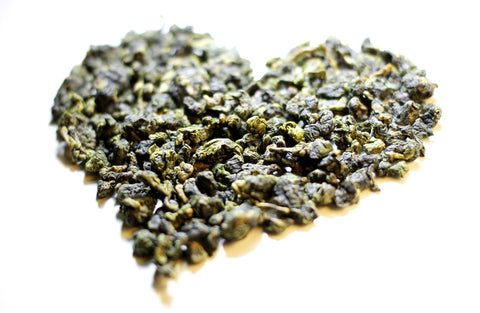The Health Benefits of Tea August 16 2013

Tea can help you maintain healthy weight, reduce wrinkles, improve vision, fight diabetes, lower cholesterol, prevent cancer, and eliminate stress.
Black, green, and oolong tea are all made from the plant Camellia sinensis, which has been examined and proven to provide various health benefits when infused in hot water. When steeping tea, dry tea leaves come into contact with hot water and water-soluble compounds within the leaves dissolve into the water, giving the tea both its natural flavors and medicinal properties. Some of the major healthy compounds found in tea and their benefits are:
Antioxidants
Tea contains catechins, a type of antioxidant, which can compose up to 30% of the dry weight of a freshly picked tea leaf. Antioxidants essentially reduce the effects of aging on the body, and can even reduce oxidative stress caused by the aging of the eyes, leading to improved vision. Teas with high polyphenol content may inhibit wrinkles by strengthening elastin and collagen in the skin. According to WebMD, “antioxidants may interfere with the growth of bladder, breast, lung, stomach, pancreatic, and colorectal cancers; prevent clogging of the arteries, burn fat, counteract oxidative stress on the brain, reduce risk of neurological disorders like Alzheimer’s and Parkinson’s diseases, reduce risk of stroke, and improve cholesterol levels.”
Theanine & Caffeine
Theanine is an amino acid that, according to various studies, has the potential ability to reduce stress and improve cognitive performance. In addition to having a stimulating effect, the caffeine found in tea may reduce the overall risk of diabetes. Research has shown that drinking black tea may protect lungs from damage caused by cigarette smoke, and may also reduce the risk of stroke. The theanine and caffeine in tea work together in harmony, which is the primary reason why drinking tea doesn’t give people the same jittery effects they might experience when drinking coffee.
Vitamins and Minerals
Tea contains Vitamin B2 (riboflavin) and Vitamin C. Riboflavin plays a key role in the body’s metabolism of fats, ketone bodies, carbohydrates, and proteins. Vitamin C is the single most popular vitamin and provides health benefits ranging from reducing the common cold to helping prevent cancer.
It is important to note that the more oxidized the tea, usually the less polyphenol content. Oolong and black teas are oxidized and fermented. Although they have less polyphenols than green tea, they still have a high level of antioxidants. Black tea has the highest caffeine content.
Tea has obvious health benefits, however as is true with any substance, should also be enjoyed in moderation. Fresh, hand picked tea has a much lower content of fluoride and aluminum than lesser quality teas that are machine harvested. In addition, the natural flavors of high-quality tea makes it unnecessary to add sugar or any other unhealthy ingredients that are typically added to lesser quality teas bought in stores. Make a habit of drinking loose leaf tea, and you will enjoy all of the benefits of a naturally healthy and delicious beverage.



